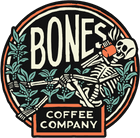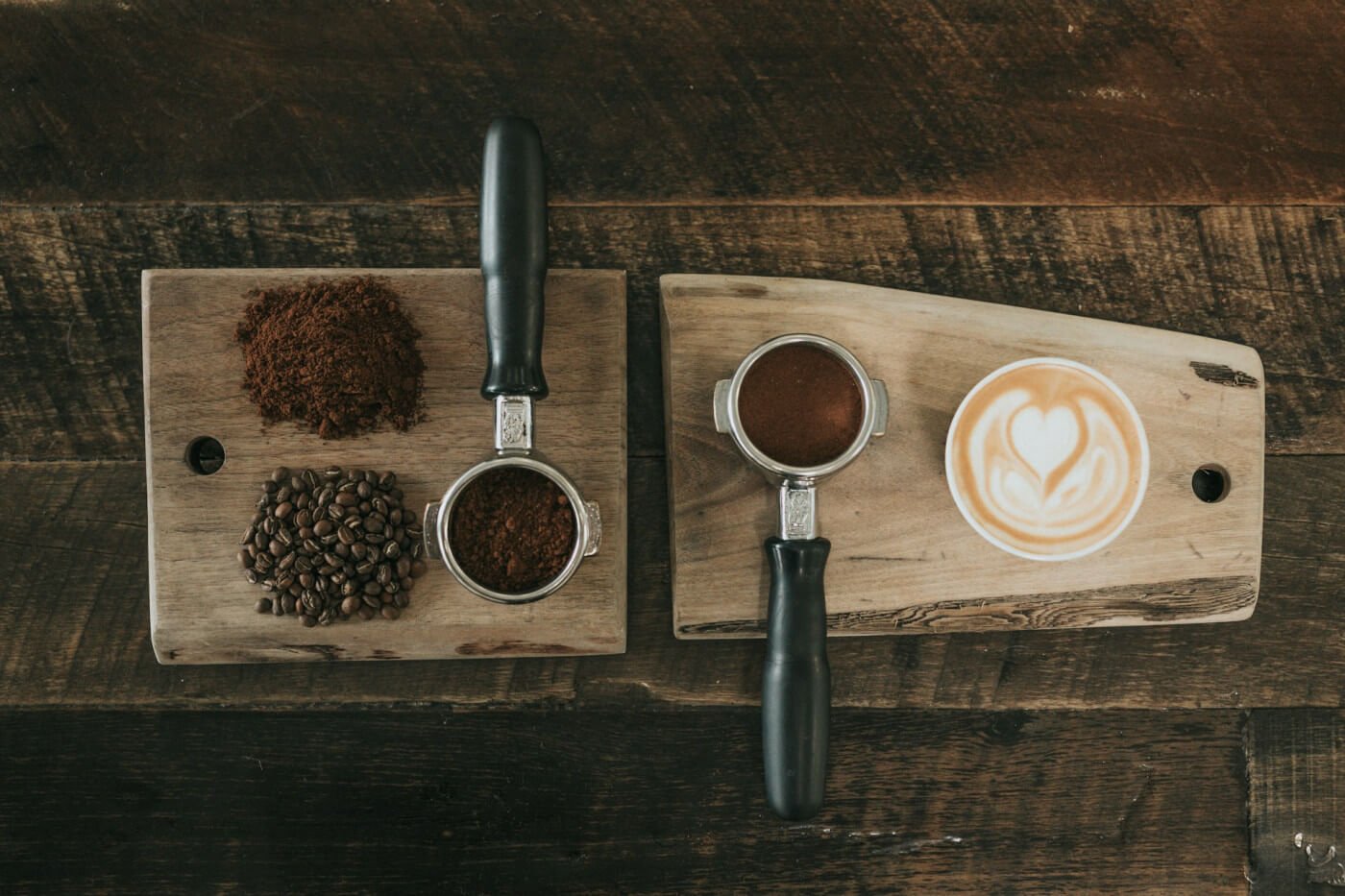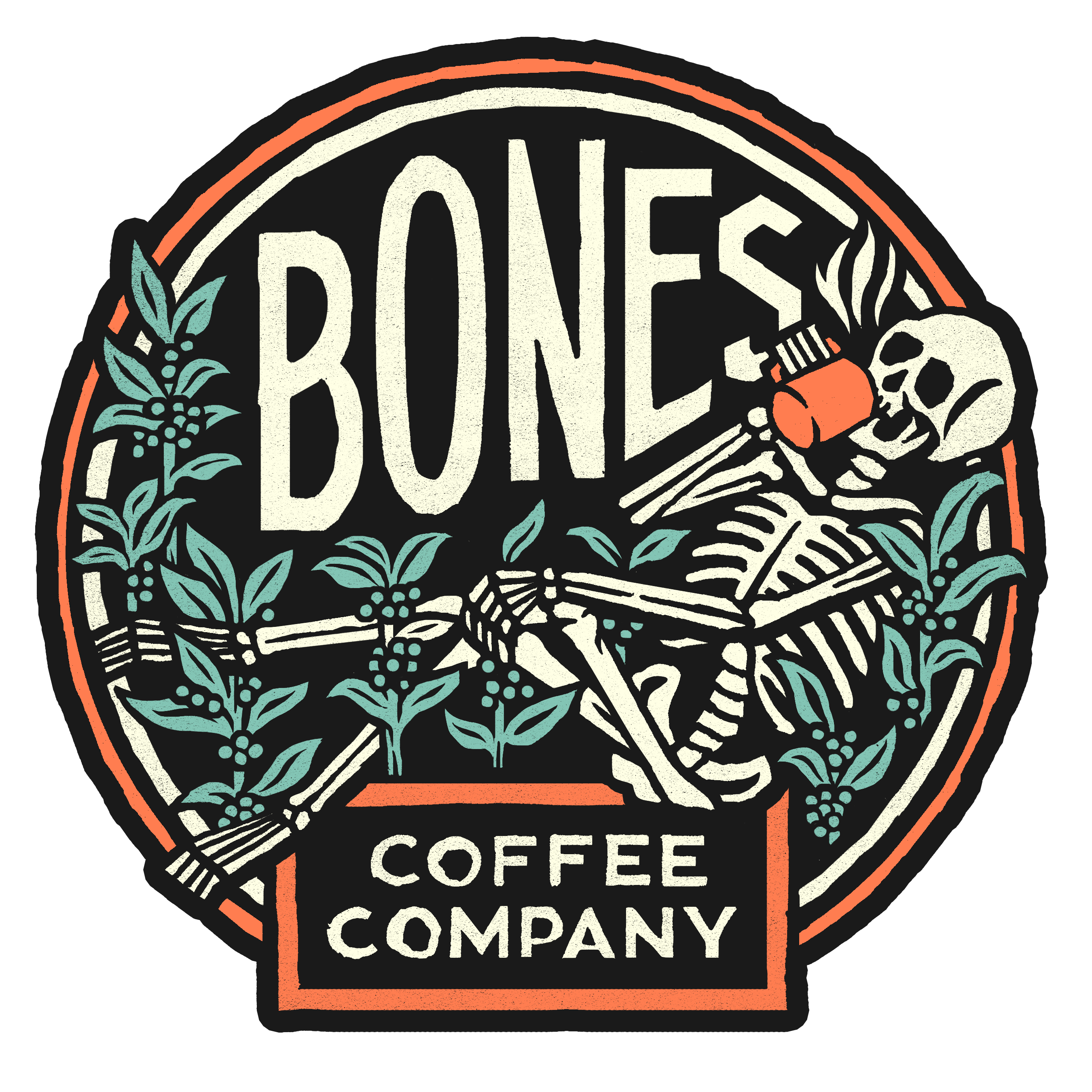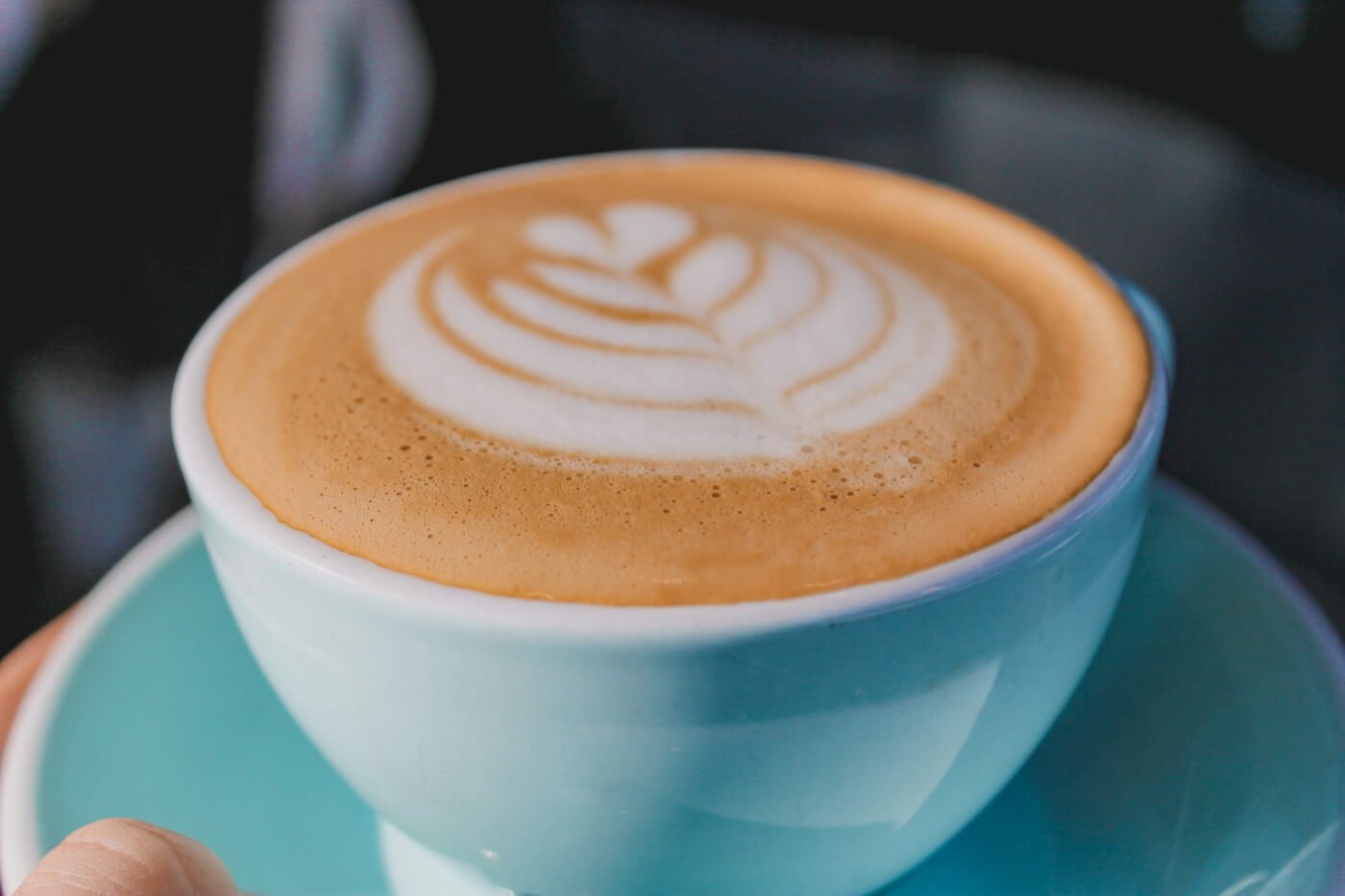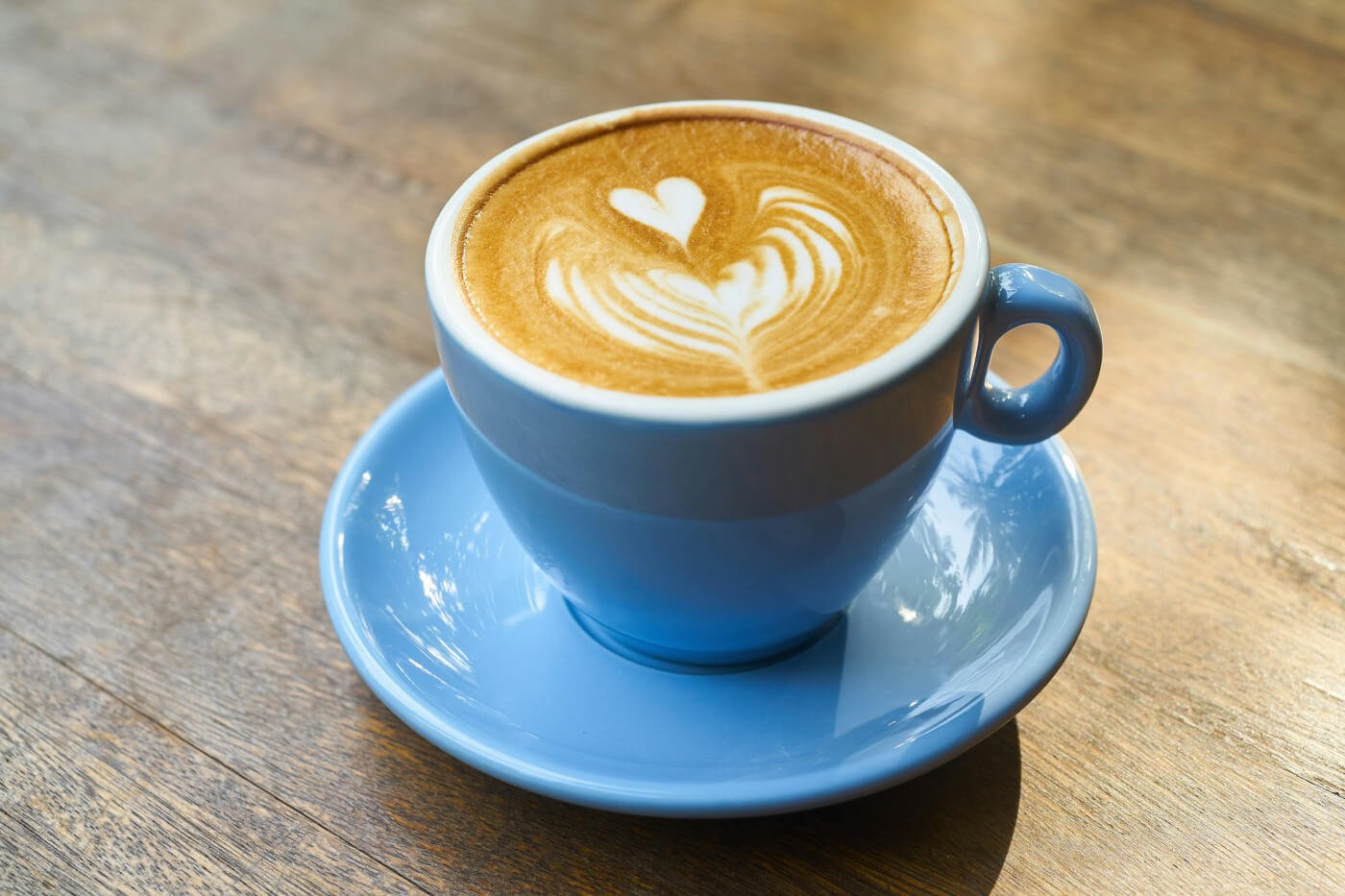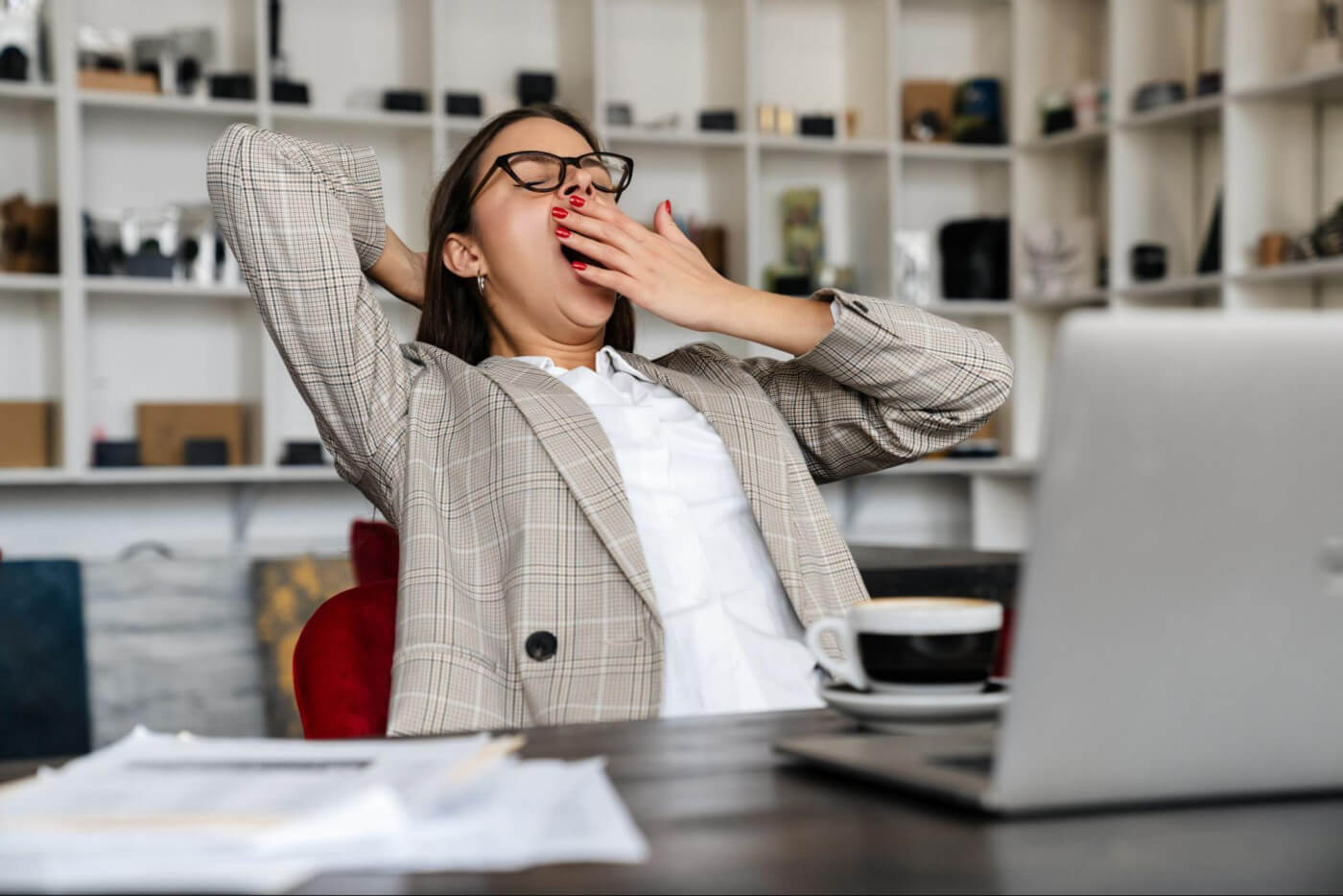A month-old bag of ground coffee would not make you sick if you brewed it, but it’s not something a true coffee lover would do. Coffee starts to lose its freshness immediately after roasting and even faster after grinding.
In terms of food safety, coffee doesn’t really expire or go bad so long as you store coffee beans properly. Like any other dry goods, coffee beans and ground coffee can last a few months to a few years in an airtight container.
So, the question of how long coffee can last can mean different things. For us, it means, “How long does coffee stay fresh?” Grab a cup of your favorite brewed coffee and let’s learn how to store coffee in the best way.
TL:DR: How Long Does Coffee Last?
The fact is, you should enjoy your freshly roasted ground or bean coffee within one to two weeks for optimum flavor. Grind whole-bean coffee when you need it and use it immediately for maximum flavor and freshness. You can store freshly ground coffee in an airtight container only for a few hours after grinding to maintain its quality.
Freeze-dried coffee and instant coffee can last indefinitely in an unopened pack. But who drinks instant coffee anyway? Whether you have it as hot or iced coffee, it’s no different from buying flavorless pre-ground coffee since all the goodness and fresh flavor has been leached away.
Stale coffee beans won’t make you sick, even though it may taste bitter and leave a grimace on your face. If you want fresh coffee that lasts more than a few hours, make cold brew concentrate. In terms of shelf life, it can last up to two weeks in the fridge if you seal it properly.
However, cold brew concentrate only lasts three or four days once it’s been diluted, so try to consume it by then.
But, we’re not Neanderthals, and as avid coffee drinkers, we like our coffee fresh and delicious. Let’s understand coffee freshness, how to maintain fresh coffee beans, and what factors affect shelf life.
Understanding Coffee Freshness
Once you grind those beans, the clock starts ticking. Freshly ground coffee begins losing its charm quickly due to its increased exposure to air, moisture, and light. Even in an airtight container, coffee loses its freshness very quickly.
Fresh, flavorful coffee has a vibrant caramel flavor, rich nutty aroma, and delightful taste because roasting initiates chemical reactions that release flavorful oils and aromatic compounds. These oils are at their peak immediately after grinding, delivering a fuller, more nuanced flavor profile.
However, these oils can degrade over time, which is why coffee starts to lose its freshness once exposed to the elements. Especially when not stored properly, old coffee can get rancid, a bit like the musty smell of a vacuum cleaner.
As coffee ages, its oils and organic compounds break down and oxidize, leading to a flat and stale taste. Spoiled coffee may not be toxic, but it’s no fun to drink.
In comparison, fresh coffee ensures a vibrant and complex flavor profile, enhancing everything from the bright acidity to the deep, rich notes that define the coffee's origin and roasting process.
Simply put, fresh coffee delivers the best sensory experience, transforming your everyday cup into a delightful moment. The key to a delicious cup of coffee is minimizing the time between roasting, grinding, and brewing.
The Type of Coffee Bean
The type of coffee bean you buy influences the flavor of your morning cup of coffee and determines how long the coffee retains its freshness.
First off, there are two main types of coffee beans: Arabica and Robusta. Arabica beans are known for their broad spectrum of flavors and aromas, creating a fresh cup with flavors ranging from sweet and fruity to sharp and tangy. They are the more delicate of the two. In terms of shelf life, Arabica tend to lose their freshness faster than Robusta beans.
Nevertheless, Arabica is a favorite in coffee shops and among coffee pods enthusiasts. If you drink coffee at Starbucks, you know what Arabica tastes like since it's the only variety they use.
Robusta beans, on the other hand, are hardier. They have a stronger, more bitter flavor and higher caffeine content, which can be appealing in instant coffee blends or when you need an extra kick to start your day.
Their robust nature contributes to a longer shelf life, making them less sensitive to the freshness-degrading effects of exposure to air, light, and moisture.
For those who use coffee pods or drink instant coffee, it may not matter much whether the beans used are Arabica or Robusta if you can’t taste the nuanced flavors in your cup of coffee.
Even though pre-ground and instant coffee products are designed for convenience and longer shelf life, starting with fresh beans always gives a better-tasting cup of coffee.
Coffee Shelf Life: What Determines the Freshness of Coffee?
Have you ever sipped on a cup of coffee that just didn't hit the spot? Chances are, it wasn't a fresh cup of coffee, and that’s the sad experience of most Americans.
Much like any other perishable good, coffee has a shelf life. Even if you store ground coffee or whole coffee beans in an airtight container, its freshness can drastically influence taste and aroma. So, how long does coffee stay fresh?
Factors such as the roast date, coffee storage conditions, and type of coffee (whole beans, ground, or brewed coffee) determine its shelf life. Storage is also important since an opaque container can help preserve freshness for much longer.
Finally, the brewing process also influences how long the flavors last while drinking coffee. Cold brew and iced coffee retain their flavors for much longer than freshly brewed hot coffee.
Origin of the Coffee Bean
The origin of the coffee bean determines the quality of coffee beans and the longevity of their fresh flavor.
Beans grown at higher altitudes, such as the mountainous regions of Ethiopia or the high plateaus of Colombia, have a denser structure due to slow growth rates in cool climates.
They’re less porous and thus slower to lose their essential oils and aromatics after roasting.
Harsh highland conditions also give coffee beans a more concentrated flavor. As a result, they tend to stay fresh longer than beans grown at lower altitudes, which are typically softer and quicker to stale.
Learn more about why altitude matters in coffee cultivation and how high elevations enhance the development of coffee beans.
By the way, that’s why Bones Coffee sources single-origin coffee beans from Ethiopia and other highland regions for unbeatable flavors.
Processing Method
Whole coffee beans undergo different processing methods that significantly impact their flavor profiles and how long they maintain their freshness. The primary methods are wet (washed) and dry (natural) processing.
Wet-processed beans involve removing the fruit covering the beans before they are dried. This method is favored for producing beans with a brighter, cleaner flavor profile. It also contributes to a longer shelf life for the beans, as removing the fruit reduces the risk of fermentation and mold, which can degrade the beans' quality and freshness.
On the other hand, dry-processed beans are dried inside the whole fruit. This traditional method allows the beans to absorb sugars and other flavor compounds from the fruit, resulting in a more robust, fruity flavor.
However, the catch with dry-processed beans is that they lose their freshness faster than wet-processed beans. This is due to the increased exposure to organic residues that can expedite the degradation process.
In short, to maximize the freshness of coffee beans, consider buying robusta beans or beans from higher altitudes, which naturally stay fresh longer. Wet-processed beans are also a good choice for their longer shelf life.
Roast Date of the Coffee
The closer your brewing date is to the roast date, the more you'll be able to savor the fresh, aromatic qualities of the coffee.
The roasting process catalyzes several chemical transformations within coffee beans, unlocking a rich palette of flavors and aromas.
Immediately after roasting, the beans begin degassing, releasing carbon dioxide and other gases trapped during the heating process. This degassing process is a big part of why freshly roasted coffee beans smell so heavenly!
This release of gases contributes to the intoxicating smell of fresh coffee and significantly affects its flavor profile and brewing effectiveness.
However, the window to enjoy these peak flavors is brief—about two weeks post-roast, the beans will have emitted most of their gases, leading to a noticeable decline in flavor intensity. The vibrant, complex tastes begin to diminish, and the coffee may start to taste stale.
Therefore, for the best coffee experience, use the beans within two weeks after the roast date to ensure each cup is as delicious as possible. Coffee grounds degas and lose their flavor even faster, usually within hours.
Type of Roast Affects Coffee Freshness
Lighter roasts retain their flavors longer than darker roasts. This is because darker roasts are exposed to heat for longer, accelerating the degassing process.
So, if you’re a fan of dark roasts, you might want to use your beans more quickly.
Also, note that coffee doesn't hit its flavor peak immediately after roasting. There is a brief period post-roasting when the coffee needs to "rest," allowing the flavors to develop fully.
This resting phase varies, but typically, coffee reaches its peak taste a few days to a week after roasting, depending on the type of roast and the specific bean.
The best way to ensure you get the freshest coffee is to buy from a roaster who prints the roast date on the bag.
Here’s a quick guide on how long the coffee peaks after roasting:
From here, roasted coffee can stay fresh anywhere from one week to three months depending on the packaging and roasting style.
How Grind Size Affects Coffee Freshness
Ground coffee goes stale faster than whole bean coffee. Whole beans act like a protective shell, safeguarding the coffee's flavorful oils and aromatic compounds from external elements.
Whole coffee beans have a robust defense against air, light, heat, and moisture—the primary enemies of coffee freshness.
Once you grind those beans, you significantly increase the surface area exposed to these elements. This exposure accelerates the oxidation process and allows more rapid absorption of odors and moisture from the environment, which can quickly degrade the coffee's quality.
Fine vs. Coarse Grind
Now, let’s get a bit more granular (pun intended).
The finer the grind, the quicker the ground coffee loses its freshness. Why? It’s all about surface area.
With ground coffee, a fine grind has more surface area exposed to those pesky freshness foes we mentioned earlier. So, ground coffee for espresso will lose its freshness faster than a coarse French press grind.
The grind size of ground coffee also impacts the extraction rate during brewing. A fine grind can over-extract and taste bitter if brewed too long, while a coarse grind can under-extract and taste sour if not brewed long enough.
So, when it comes to ground coffee, it’s a balancing act between grind size, brewing time, and coffee freshness.
So, to keep your coffee as fresh as possible, buy whole beans and grind them just before brewing. And the finer your ground coffee is, the quicker you should use it. Similarly, drink brewed coffee as soon as possible or convert it to iced coffee to preserve it longer.
How to Store Coffee for Maximum Freshness
Keeping your coffee fresh is the key to maintaining that rich, robust flavor we all crave. Air, moisture, heat, and light can quickly turn your aromatic, flavorful coffee into a stale, flat cup of disappointment.
So, the goal is to keep your coffee away from these as much as possible, usually in airtight containers. Stale coffee beans are easy to spot: if they smell musty like cardboard or look modly, throw them out! Or, you can use spent coffee grounds as fertilizer.
Use an Airtight Container
When oxygen comes into contact with the compounds in coffee, it triggers a chemical reaction known as oxidation. This process fundamentally changes the coffee's chemical makeup.
The essential aromatic compounds that contribute to fresh coffee's rich and complex flavors are particularly susceptible to chemical change. As these compounds oxidize, they transform, losing their vibrant notes and complexity, which results in a coffee that tastes stale and flat.
Additionally, oxidation affects the oils in whole or ground coffee, which are crucial for carrying the flavors and aromas. These oils can become rancid when oxidized, further degrading the coffee's quality and altering its taste negatively.
The degradation can be noticeable in both the smell and the flavor of the brewed coffee, turning what should be a pleasurable experience into a disappointing one. That's why minimizing the coffee's exposure to air is so crucial for maintaining its freshness and delightful characteristics.
Store Coffee in a Cool, Dark Place
Both heat and light can accelerate the chemical reactions that lead to the staling of coffee. When exposed to heat, coffee can undergo further roasting even after the initial process is complete, which alters its flavor profile and reduces its shelf life.
Light, particularly UV light, can break down the chemical compounds in coffee that are responsible for its aroma and flavor.
Keep your coffee in a pantry or a cupboard located away from heat sources like stoves, ovens, and other appliances to keep it at a consistent, cool temperature and away from direct light. This helps to slow down the processes of oxidation and the breakdown of essential oils and aromatic compounds in the coffee.
For the same reasons, consider using opaque, air-tight containers to provide an extra layer of protection against any light that might penetrate the area used for storing coffee, further ensuring that it remains as fresh as possible.
Avoid the Fridge or Freezer
Contrary to popular belief, freezing coffee beans isn’t a great idea. The fluctuating temperatures in the fridge can create moisture, which can damage the flavor. Long-term coffee storage generally doesn’t work unless you buy it already freeze-dried.
If you decide to keep coffee in the freezer, ensure it’s vacuum-sealed to avoid absorption of the air and moisture around it.
Plus, coffee can absorb odors, so it's best to avoid the fridge unless you want your morning brew to taste like last night’s leftovers. For the same reason, don’t freeze your coffee beans if you count yourself among coffee lovers.
Buy Whole Coffee Beans
Wherever possible, buy whole-bean coffee and grind it as you need it.
Buying coffee beans and grinding when brewing is the most effective way to ensure maximum freshness and flavor in your coffee. Whole beans have a significantly lower surface area compared to ground coffee beans, which minimizes their exposure to degradation.
Moreover, grinding your own coffee right before brewing allows for more control over the grind size, which is essential for proper extraction and achieving the best taste from your brewing method of choice.
Don’t Buy Coffee in Bulk
Buying coffee in bulk can seem economical, but it might not be the best approach if you're aiming for the freshest, most flavorful cup.
Large quantities of coffee will lose their freshness more quickly than you can consume it. To keep your coffee at its peak, consider purchasing smaller quantities that you can use within a few weeks.
This strategy ensures that you're always brewing with beans that are close to their roast date, maintaining optimal flavor and aroma.
Additionally, buying smaller amounts more frequently supports a cycle of freshness and allows you to experiment with different roasts without committing to a large batch. That’s why, at Bones Coffee, we roast and ship our delicious beans in small batches for maximum freshness.
In the same spirit, make brewed coffee in small batches. The longer coffee sits in the pot or flask, the more it loses its delicate aroma and flavors. Coffee is best enjoyed piping hot right after brewing, even though it may have a sweeter, more fruity taste as it cools.
Get Coffee Packaged to Preserve Freshness
Coffee comes in a variety of containers, from fancy tins to simple paper bags. But which one is the best for preserving freshness?
- Vacuum-Sealed Bags: These keep air out, ensuring your coffee beans stay fresh, especially for unopened coffee.
- Tins and Glass Jars: These are sturdy and reliable, but make sure they’re opaque or keep them in a dark place.
- Paper Bags: They’re great in a pinch, but they’re not the best for long-term storage since they can let air and moisture in; consider transferring to an airtight container.
Coffee beans are like little sponges, absorbing everything around them. This includes the air in your kitchen. The more your coffee is exposed to air, the faster it will lose its flavor.
And every time you open your coffee container, you’re letting air in. So, try to only open your container when you’re ready to brew a cup. This even applies to instant coffee, which is extremely hygroscopic. Once you open the package, use the coffee as fast as possible.
Bones Coffee always ships in airtight packaging right after roasting, giving you more time to savor the delicious flavors of our classic and flavored coffee beans.
Summary
So, how long does coffee last? Here’s the deal: unopened coffee beans can stay fresh for quite a while. If stored properly, they can maintain their freshness for up to two years.
But, the moment you break that seal, the clock starts ticking. Open packages of coffee beans can stay fresh for about two weeks, depending on how you store them. As for brewed coffee, don’t let it keep for more than a few hours even in a thermal mug.
If your brewed coffee goes bad on you, repurpose it to iced coffee or use it in cooking. Remember, the key to a great cup of Joe is fresh coffee, so keep those beans in a cool, dark place and grind as you go.
Now, go forth and brew with confidence, knowing you’re armed with all the knowledge to keep your coffee at its freshest!
Psst! If you’re looking for coffee beans bursting with flavor and expertly roasted goodness, join the Bones Coffee Club and receive a bundle of delicious coffee whenever you need it.
